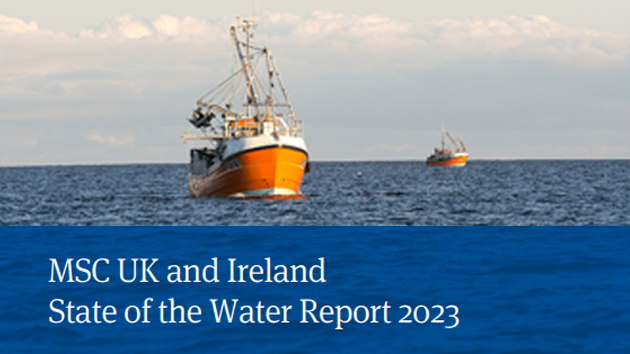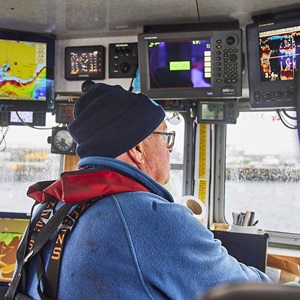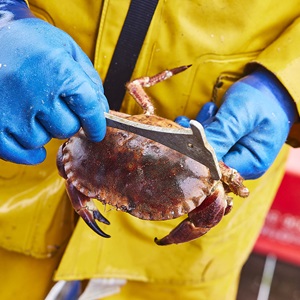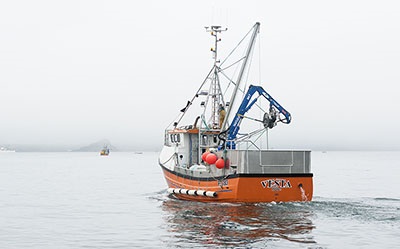Fisheries don’t stop improving once they become MSC certified. They make a long-term commitment to sustainability and to keep up with global best practice.
To be certified as sustainable, fisheries must score an average of at least 80 out of 100 for each of the MSC Fisheries Standard’s three principles: sustainable stocks, environmental impacts and effective management.
Fisheries improve significantly as they stay in the program.
The graph below shows the distribution of scores from all currently global certified fisheries that have completed at least two full assessments against the MSC Fisheries Standard – typically this reflects changes over five years. For all three principles
there is a statistically significant improvement between the average (median) score when they join the program and at the end of the first certification period.
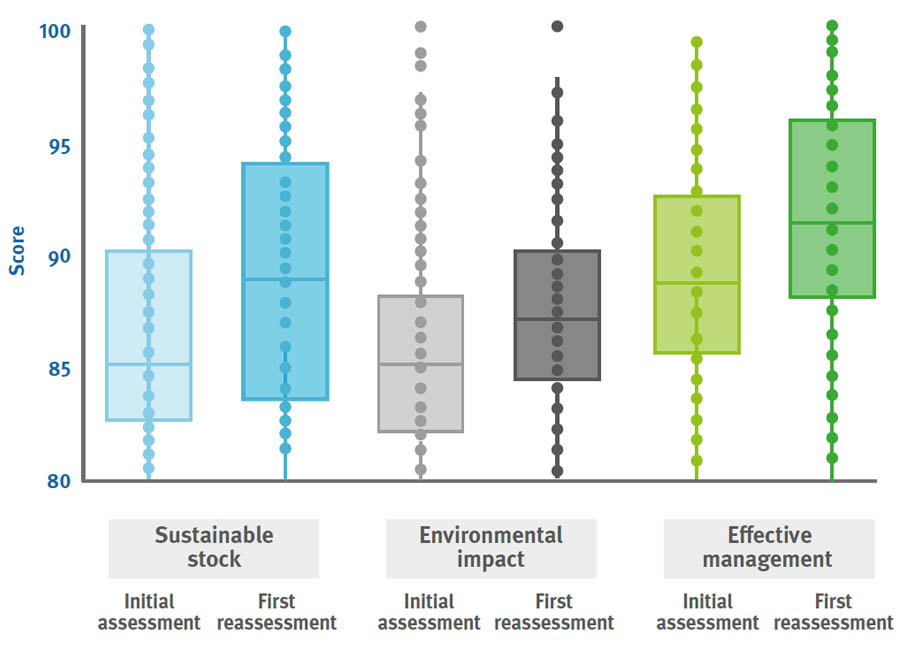
How does the MSC drive sustainability?
The three principles of the Fisheries Standard are scored against 25 indicators. If a certified fishery scores less than 80/100 on an individual indicator, it will be set a ‘condition of certification’ by the independent assessor. The fishery must then implement a plan of action to make improvements that will bring it up to global best practice. If conditions are not met within the certification period (usually 5 years), the fishery is suspended from the MSC program.
Over 95% of certified fisheries have successfully completed at least one condition. Conditions drive continual improvement towards global best practice in fisheries sustainability.
What improvements have been made?
Completing one condition can lead to a wide range of improvements. By March 2024, MSC global certified fisheries had recorded over 2,362 different improvements.
Sometimes, one action produces multiple improvements. For example, modifying gear types could reduce bycatch of a range of species.
Improvements by MSC global certified fisheries over the last three years: 417
146
118
74
79
Case Studies: MSC UK and Ireland fisheries improvements
Discard monitoring
Fishermen in the North Sea and off the west coast of Scotland fishing for coley now have digital cameras on deck to monitor whether they also catch any common skate. If they do, this critically endangered species is returned live back to the sea.
Acoustic deterrents
The introduction of a Dolphin Deterrent Device on board all vessels at the MSC certified hake fishery in Cornwall. The sound waves from this acoustic pinger are successfully deterring dolphins and other cetaceans from the fleet’s fishing nets.
ETP reporting
Clam and cockle fishermen in Poole Harbour in Dorset were given training and educational materials to help them identify protected species, as part of a project that received funding from the MSC’s Ocean Stewardship Fund, a global fund providing grants to support fisheries on the sustainability journey.

